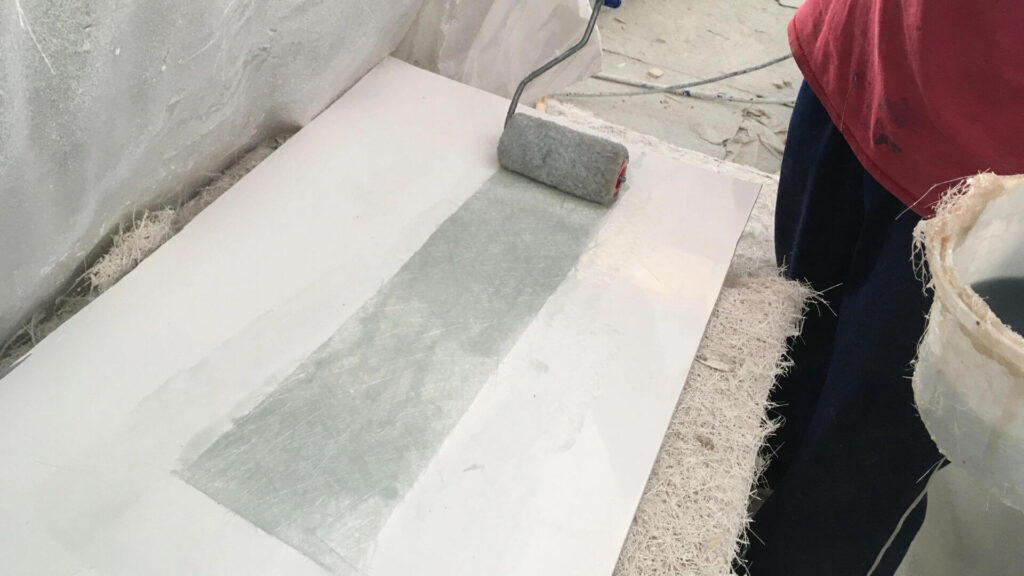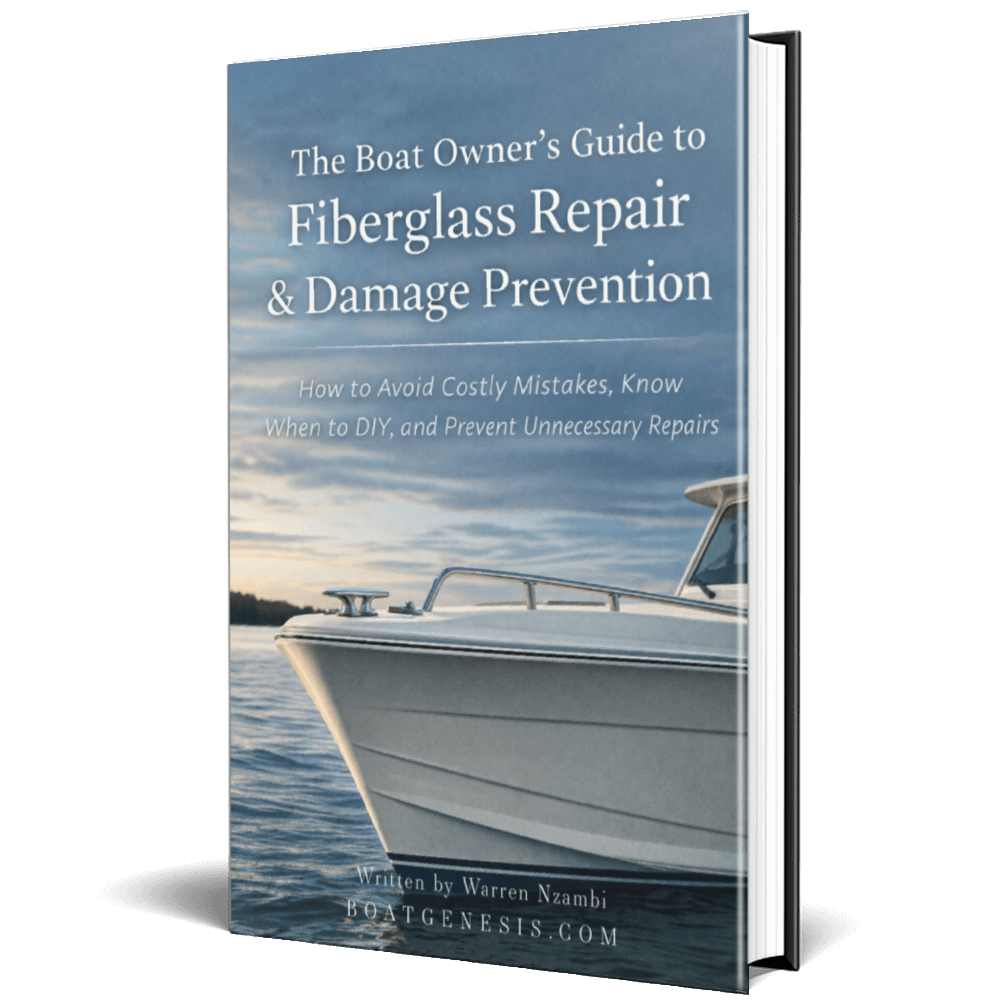Are you noticing cracks appearing on your fiberglass boat? It can be a worrying sight, but don’t panic just yet!
In this article, we’ll dive deep into the world of fiberglass boat cracks, exploring the various causes and what you can do to prevent and fix them.
So, let’s get started!
Understanding Fiberglass Boat Construction

Before we discuss the causes of cracks, it’s essential to understand how fiberglass boats are built.
Fiberglass boats are constructed using a combination of glass fibers and resin. The glass fibers provide strength, while the resin binds the fibers together and creates a smooth, waterproof surface.
On top of this fiberglass material is gelcoat, the first line of defense against the elements.
Want to avoid costly fiberglass boat repair mistakes?
Learn how to inspect damage properly, decide when to DIY, and prevent expensive fiberglass problems before they start.
What Causes Cracks in Fiberglass Boats
Here are the common causes of cracks on your fiberglass boat gelcoat.
1. Stress and Flexing
One of the primary reasons for cracks in fiberglass boats is stress and flexing.
As gelcoat ages, it can become hard and brittle, making it more susceptible to cracking when the boat experiences stress or movement. This stress can be caused by various factors, such as:
- Rough water conditions
- Improper trailer support
- Hitting objects in the water
2. Impact Damage
Another common cause of cracks in fiberglass boats is impact damage.

This can occur when your boat collides with docks, rocks, or other objects in the water.
Even minor impacts can cause small cracks in the gelcoat, which can lead to more significant problems if left unrepaired.
==>> Also read: What causes blisters on fiberglass boats?
3. Weather and Temperature Changes
Extreme weather conditions and temperature fluctuations can also contribute to the development of cracks in fiberglass boats.

This guide helps boat owners understand fiberglass damage clearly — what matters, what doesn’t, and when repairs are truly necessary, so small issues don’t turn into expensive mistakes.
See What Every Boat Owner Should Know →Exposure to sunlight, freezing temperatures, and moisture can cause the gelcoat to expand and contract, leading to the formation of cracks over time.
==>> Also read: Environmental impact on fiberglass boats
4. Improper Maintenance and Repairs

Neglecting regular maintenance or performing improper repairs can also lead to cracks in your fiberglass boat.
Using the wrong type of resin or failing to properly prepare the surface before making repairs can cause the gelcoat to crack or peel.
==>> See how to repair your fiberglass boat here properly!
Preventing Cracks in Your Fiberglass Boat
While it’s impossible to completely eliminate the risk of cracks, there are several steps you can take to minimize their occurrence:
- Regularly inspect your boat for signs of stress or damage
- Ensure your boat is properly supported on its trailer or cradle
- Avoid hitting objects in the water whenever possible
- Store your boat in a covered area to protect it from extreme weather conditions
- Perform regular maintenance and repairs using the proper materials and techniques
What to Do If You Find Cracks in Your Fiberglass Boat
If you do discover cracks in your fiberglass boat, it’s essential to address them promptly to prevent further damage. Small cracks can often be repaired using a gelcoat repair kit, while larger cracks may require professional assistance.
If the gel coat surface is cracked or damaged due to impacts or vibrations, water seeps in through the cracks and damages the structure.
That’s why it’s crucial to take action as soon as you notice any cracks in your boat’s gelcoat.
Conclusion
Cracks in fiberglass boats are a common issue that can be caused by various factors, from stress and impact damage to weather and improper maintenance.
Understanding the causes of these cracks and taking proactive steps to prevent them can help ensure your boat remains in top condition for years to come.
Remember, if you do find cracks, don’t hesitate to address them promptly to avoid more extensive and costly repairs down the line.

Warren is the founder of BoatGenesis and brings practical experience in fiberglass boat repair, marine equipment testing, and powerboat building. He has worked on a range of repair and restoration projects and now focuses on creating clear, research-based guides to help boat owners avoid costly mistakes and make smarter maintenance decisions. Learn more about Warren.




